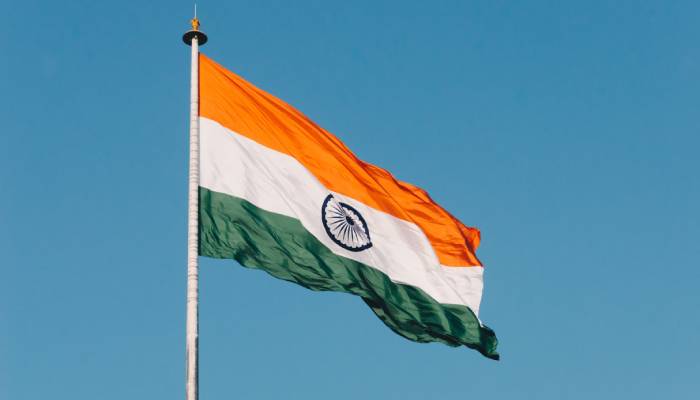
or

The traditional concept of Citizenship is based either on jus soli (“citizenship by right of birth within the territory”) or on jus sanguinis (“citizenship by right of blood”). However, post World War II, the political, economic and humanitarian dynamics and compulsions across the world have immensely expanded the frontiers of citizenship. Many countries allowed the acquisition of citizenship of their respective countries by individuals of other jurisdictions for ideological reasons, to boast their intellectual wealth and also to gain economic prowess. India has, however, by and large not allowed its citizenship regime to be influenced by any extrinsic reasons and has tried to adhere to the ideals enshrined for citizenship mentioned in the Part II of the Constitution of India. The Citizenship Act, 1955 (‘Act’) reflects these ideals and primarily provides for jus sanguinis i.e. citizenship by right of blood as opposed to the jus soli i.e. citizenship by right of birth within the territory.
Under the provisions of the Act, Indian citizenship can also be acquired by descent, registration and naturalization.
A person born outside India is a citizen of India by descent (i) if his father is a citizen of India by birth at the time of his birth and such person is born on or after 26th January 1950 but before 10th December 1992, (ii) if either of his parents was a citizen of India by birth atthe time of his birth and such person is born on or after 10th December 1992 but before 3rd December, 2004. Where such father or either of the parents is a citizen of India by descent, the person’s birth is required to be registered at the Indian Consulate of the country, where the person has taken birth.
Under this category, Citizenship of India can be acquired by persons of Indian origin who are ordinarily resident in India for five years; or by persons of India origin who are ordinarily residents in any country or place outside undivided India; or by person who are or have been married to a citizen of India; or by minor children both of whose parents are Indian citizens etc.
Under this category, citizenship of India can be acquired by a foreigner (not an illegal migrant) and who is ordinarily resident in India for twelve years and possesses other qualifications as specified in Third Schedule to the Act.
It may thus be said that acquisition of Indian citizenship is governed by the principle of jus sanguinis as much as by the criteria of descent, registration and naturalization. Although in the case of acquisition of citizenship by registration and naturalization, the Act prescribes certain objective conditions which need to be fulfilled before making an application, however, fulfillment of those conditions by themselves do not guarantee the acquisition of Indian citizenship. The government may in its discretion reject an application notwithstanding the fact that the applicant fulfills all the prescribed conditions. An applicant otherwise in fulfillment of all the prescribed conditions but with an undesirable track record orpotential to spawn trouble in future or any other reason, which is not favorable in discretion of the authority, is not likely to be granted citizenship. Thus, acquisition of Indian citizenship is a matter of right only in case of citizenship by birth, ties of blood and descent. Acquisition of citizenship by registration and naturalization is subject to government’s discretion and strictly speaking, cannot be claimed as a right.
It may, however, be mentioned that citizenship rights (be it citizenship acquired by birth, ties of blood, descent, registration, naturalization) are not absolute. Indian citizenship gets automatically terminated on acquisition of citizenship of a foreign country. Further, under section 10 of the Indian citizenship Act, 1955, the Central government may deprive any citizen of Indian Citizenship, if a citizen has been ordinarily resident out of India for a continuous period of seven years and not engaging himself with any educational institution in a country outside India; or has during any war assisted any enemy of India; or has acquired citizenship by fraud, concealment of any material fact etc. Indian citizenship is thus not an absolute right but a privilege.
Amiya Ranjan Nayak is a Partner with Kaden Boriss, Legal and Business Strategists. As a Corporate and Commercial Lawyer, he handles Regulatory, Advisory, Compliance & Documentation services pertaining to Real Estate laws like due-diligence, development, acquisition, disposition, leasing, financing, zoning and land use, etc. besides the services relating to Corporate, Commercial and Cross boarder investment laws.

Lex Witness Bureau

Lex Witness Bureau

For over 10 years, since its inception in 2009 as a monthly, Lex Witness has become India’s most credible platform for the legal luminaries to opine, comment and share their views. more...
Connect Us:


The Grand Masters - A Corporate Counsel Legal Best Practices Summit Series
www.grandmasters.in | 8 Years & Counting
The Real Estate & Construction Legal Summit
www.rcls.in | 8 Years & Counting
The Information Technology Legal Summit
www.itlegalsummit.com | 8 Years & Counting
The Banking & Finance Legal Summit
www.bfls.in | 8 Years & Counting
The Media, Advertising and Entertainment Legal Summit
www.maels.in | 8 Years & Counting
The Pharma Legal & Compliance Summit
www.plcs.co.in | 8 Years & Counting
We at Lex Witness strategically assist firms in reaching out to the relevant audience sets through various knowledge sharing initiatives. Here are some more info decks for you to know us better.
Copyright © 2020 Lex Witness - India's 1st Magazine on Legal & Corporate Affairs Rights of Admission Reserved